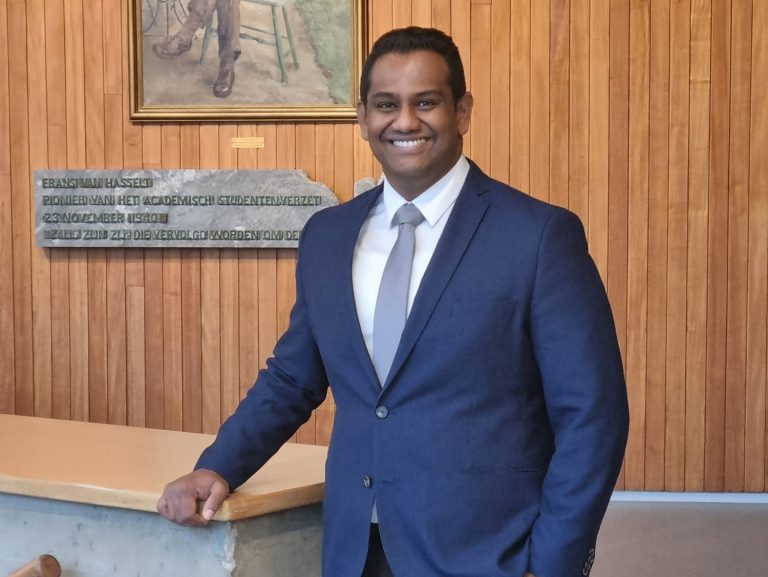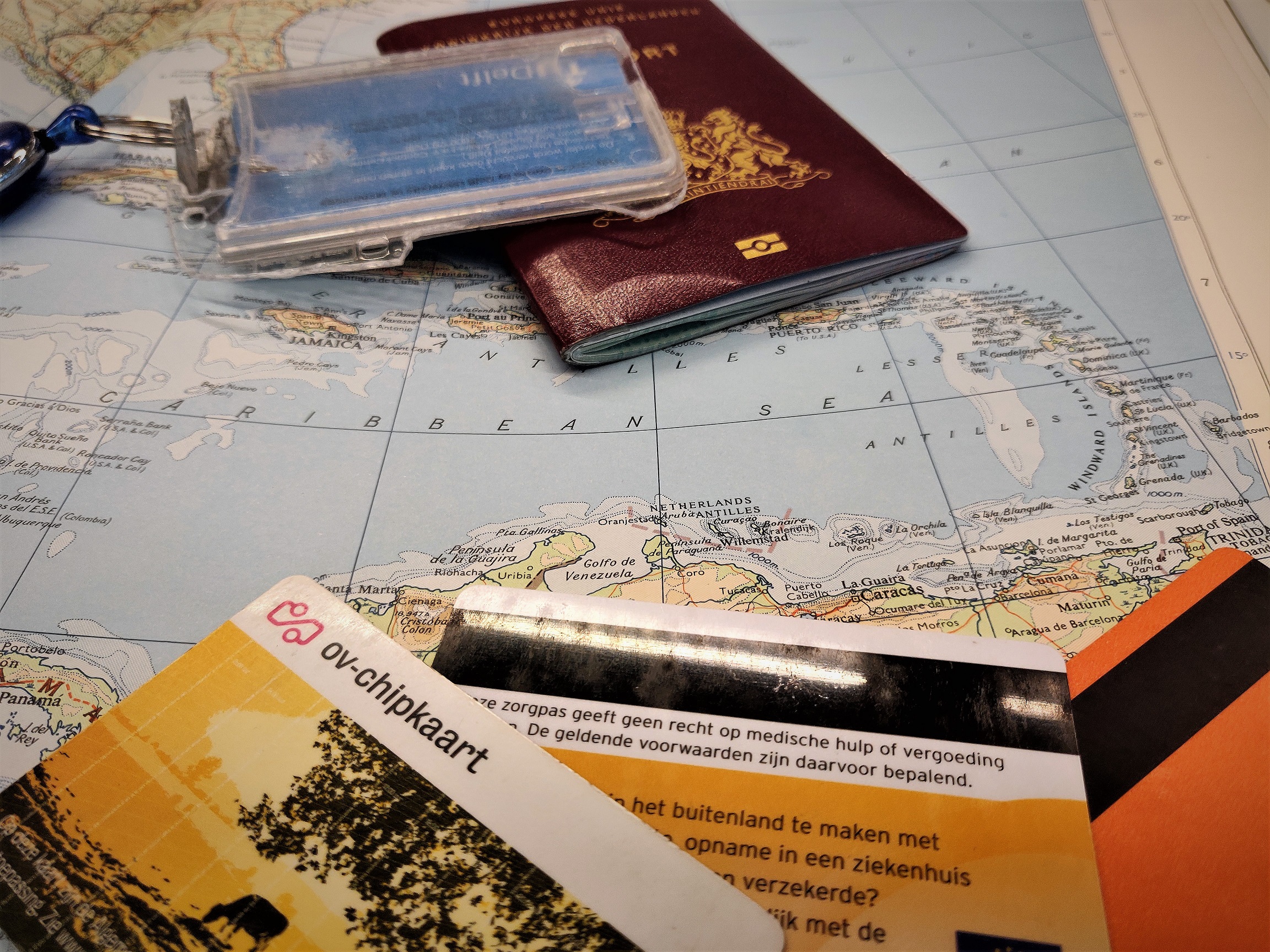For Nitesh Bharosa, Diversity Officer at TPM, the problems faced by Caribbean students have always been a blind spot. “We now need to ask ourselves what we can do about it.”
Diversity officer Nitesh Bharosa: “There is no single point of contact or body that covers the entire student journey”. (Photo: Marjolein van der Veldt)
Inadequate information for prospective students, language delays and little support. Diversity Officer Nitesh Bharosa (Technology, Policy and Management) recognises the problems faced by Dutch Caribbean students – he came to the Netherlands from Suriname in 2001 as a first year student. He believes that Dutch Caribbean students now face the same obstacles as he did 20 years ago.
‘I feel sad that little has changed over the last 20 years’
You came to TU Delft in 2001. What problems did you experience then?
“Culture shock, problems with the language and having to wait for months as everything goes by post if you don’t have a digital identity (now the DigiD). While the current issues are recognisable, I feel sad as it shows that little has changed over the last 20 years.”
Where does the problem lie?
“The number of Dutch Caribbean students at TU Delft is relatively small. Between 10 and 15 bachelor students start here every year and in total, there are about 60 Dutch Caribbean students at TU Delft out of almost 28,000 students. This does not make their problems any less important, but it does make them less visible. I am happy that they are starting to get more attention. The ombudsman report shows that the drop-out rate is significantly higher among Caribbean students than among other groups. This is an undesirable situation for everyone. Awareness is the first step. We now need to ask ourselves what we can do about it and what role organisations can play.”
How do you see this?
“We need to look at the different aspects that Caribbean students face before and during their study period. These could be practical aspects such as taking informed decisions on study options, applying for a DigiD or bank card, finding somewhere to live, arranging insurances, the introductory period, forming a community and contact with academic counsellors. Going to university is already a life changing event in itself, but for students from abroad it is more complicated. There is a high degree of self-reliance in the Netherlands. Caribbean young people are not used to so many different bodies concentrating only on their own area of work. There is no single point of contact or body that covers the entire student journey. Always being referred on to another organisation quickly leads to the feeling of falling between the cracks. This is not a good feeling if you have just arrived in a new country. These bodies should work more closely together to remove these stumbling blocks. It should start with information for prospective students and go right through to graduation.”
What role can TU Delft play in this?
“Diversity and inclusion are important themes for TU Delft. They look at all the obstacles on issues such as gender, origin, ethnicity, religion or physical ability that students and staff face. The Ombudsman’s report and an article in Delta have drawn attention, including that of the Diversity Officers, to the struggles that Dutch Caribbean students face. TU Delft now needs to assess the problems that students come up against and the solutions that we ourselves and jointly with other bodies can come up with. The Diversity Office will take on this task.”
But the problems are not new. Why is there time and attention for this now?
“Things are very different today than when I was studying. For example we now find it unacceptable that people cannot be themselves and are excluded. In my eyes, the TU Delft Diversity Office was also established quite late, especially if you look at other institutions in the Netherlands and outside. However, better late than never. The commitment is there. You could see this during the diversity week and how Vice Rector Rob Mudde talked about diversity. It just needs time and cooperation to get this on the rails.”
 (Photo:private collection Nitesh Bharosa)
(Photo:private collection Nitesh Bharosa)To thorougly assess the issues faced by Dutch Caribbean students, Nitesh Bharosa will contact the ABC Compas and Subest Delft (an association for the Surinamese student community at TU Delft).
Bharosa can be contacted by email by any students and staff who would like to discuss any issues or ideas for improvement.
Do you have a question or comment about this article?
m.vanderveldt@tudelft.nl


Comments are closed.